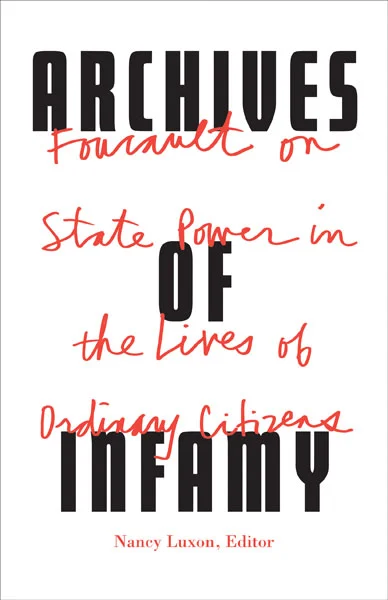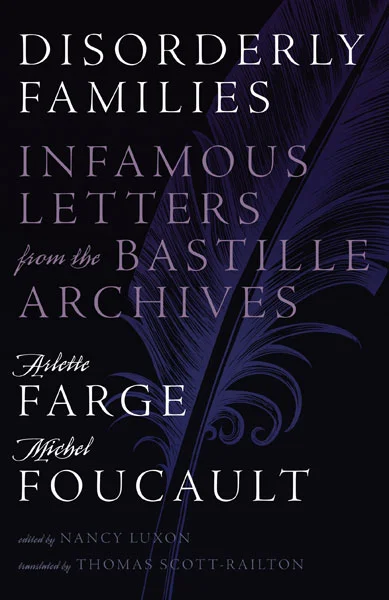Expanding the insights of Arlette Farge and Michel Foucault’s Disorderly Families into policing, public order, (in)justice, and daily life
Crisscrossing the Atlantic to collect unpublished radio broadcasts, book reviews, and essays, Archives of Infamy provides historical and archival contexts to the translation of Disorderly Families by Arlette Farge and Michel Foucault. It offers a new perspective on the crystallization of ideas—of the family, gender relations, and political power—into social relationships and the regimes of power they engender.
Interview: KUMD
The first English translation of letters of arrest from eighteenth century France held in the archives of the Bastille
First published in French in 1982, this first English translation of Disorderly Families contains ninety-four letters collected by Arlette Farge and Michel Foucault from ordinary families who submitted complaints to the king of France to intervene and resolve their family disputes. Together, these 18th century letters offer unusual insight into the infamies of daily life.
Reviews: Times Literary Supplement, London Review of Books, Symploke, Kirkus
How can individuals make ethical judgments about power and politics? Crisis of Authority analyzes the practices that bind authority, trust and truthfulness in contemporary theory and politics. I locate two models for such practices in Sigmund Freud's writings on psychoanalytic technique and Michel Foucault's lectures on the ancient ethical practices of 'fearless speech,' or parresia. I argue that the dynamics provoked by the figures of psychoanalyst and truth-teller are central to this process. My account offers a more supple understanding of the modern ethical subject and new insights into political authority and authorship.
Reviews: Political Theory, Perspectives


